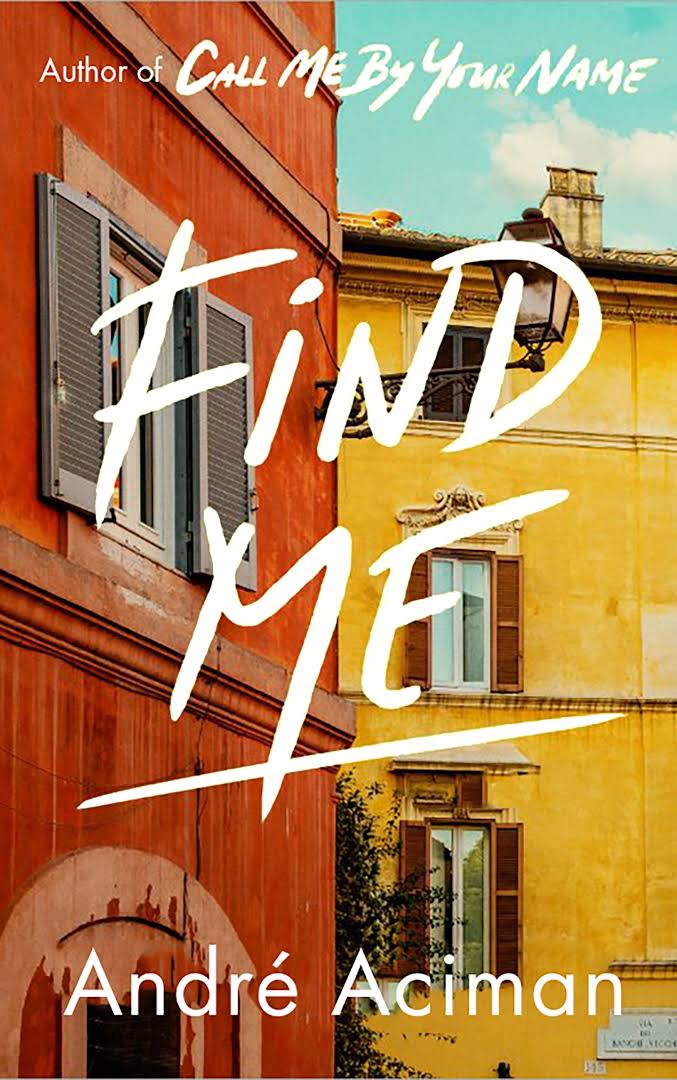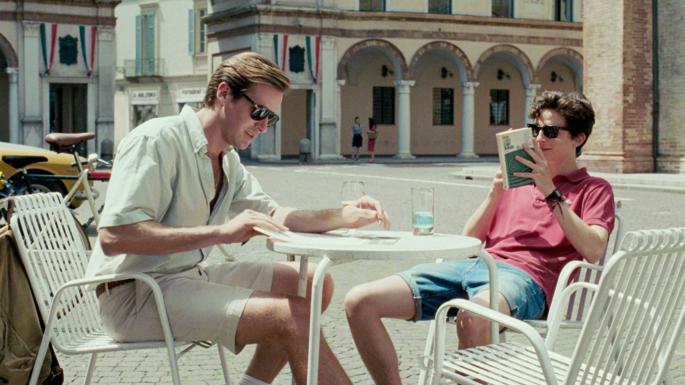Describing Find Me, the new novel by André Acmian, as simply a sequel to Call Me By Your Name does both novels a disservice. Yes, the former does re-introduce readers to the characters they fell in love with in the latter. But aside from that, the books feel worlds apart. Rather, as André puts it when we speak on the phone, it might be fairer to say that his new novel, as well as his previous book Enigma Variations, are “inspired by Call Me By Your Name”.
In Find Me, we are re-introduced to Elio, Oliver and Elio’s father, Samuel, whose narrative actually makes up most of the novel’s length. Spanning the two decades after that fateful summer of 1983 in which the lives of these characters – even Samuel’s – were irrevocably changed, this new novel explores the repercussions of allowing certain layers of your life to go unlived.
These aren’t the same people we met in Call Me By Your Name; instead, each is weathered by time, their lives eroded away by missed opportunities. Narratively, André is more utilitarian, the usual expansive and wandering nature of his narrators’ memories are clipped in favour for the present, exposition and philosophical queries replaced with fast-paced dialogue. There are new characters, too: the enigmatic Miranda in Samuel’s section, Michel in Elio’s, and Paul and Erica in Oliver’s. Each new addition to André’s world is a catalyst for realisation, shaking the existing characters awake from a life half lived.
In part one, Samuel is travelling to Rome to meet with Elio, now a professional pianist, when he meets Miranda, a younger woman, on a train. The second section sees Elio encounter Michel, an older man whom he feels a deep connection, while the third, set 20 years after Call Me By Your Name, follows Oliver living in New York, yearning for a life that he left behind.
There is a final section, but to say any more of the plot would be to ruin it. Instead, we spoke to André Aciman about everything you need to know before diving into Find Me, as well as what it was like to revisit Elio and Oliver.
André really loved writing the character of Miranda
“She has pluck. And she has charisma. She is not the soft, female character that you find in most films or books. She is aggressive, she can be cruel, she can be mean, she can be dismissive; and at the same time, she knows what she wants. The best part of her is when she says, “I’ve got to tell you something now, because if I don’t say it now, after we have sex, I won’t have the courage to tell you.” It’s contrary to what most people assume. They assume that once you have sex then the doors are open. She thinks that the doors close once you have sex, so she wants everything out before.”
The first two sections of the novel can be read as companion pieces
“I never consciously thought about the age difference between the characters until I was well into the second story. I realised then that these two parts are parallel tales in many ways. But it came very naturally that a young person would be with an older person. You don’t think about those things: I need to have a companion piece, therefore I’m going to make one old and one young and one young and one old. You don’t think that way; the stories just evolve. Then you realise that they have much in common. You don’t want to force the companionship between the two pieces too much because then it becomes gawky and awkward and forced. I didn’t want that.”
There is, however, something very specific that joins them
“I wanted [the connection] to be subliminally put in there without erupting on you as a theme. If you see it, that’s good, but it clearly creates a subterranean connection between the tales, and I wanted it there for that purpose.”
There’s a reason Elio’s father isn’t portrayed as the wise man from Call Me By Your Name
“You must have friends who have been together for years and years, and you say, ‘You are the most perfect couple and have the most perfect relationship I have seen in my life.’ And then you find out a few weeks later that they’re separating or getting a divorce. It happens to all of us. We see these model couples who are the picture of bliss and then you find out that they are separating and realise, of course, that there was hell underneath.
“I’m sure that the same thing happened to Elio’s father. The picture of it was superb, but as you find out they were together but not really together. So that came out. But it doesn’t surprise me. Yes, Sami has a totally different profile now than he does in Call Me By Your Name. If you wanted him to be the blissfully happy man who can dispense advice to his son, you would be shocked.”

Time plays an important part in the novel
“There’s a line that takes place during the conversation when Samuel and Miranda have lunch with her father that explains that we’re not quite aligned to this thing called time. In other words, time couldn’t care less about how we think about time. But fundamentally, we are not right for time, which is another way of saying that we as human beings are not exactly right for life, as it were. This takes me to my next book, which is a collection of essays called Homo Irrealis, and is about the subjunctive, the conditional, the optative; if you’ve studied ancient Greek then you know what I’m talking about. These are forms of time that never happen, or haven’t quite happened.”
Returning to the characters of Elio and Oliver was a process of excavation
“As I was writing the book, I was not really thinking of Elio and Oliver as they were back then. I’m thinking more about their current situations and their current desires, and occasionally something hovers from the past and lodges itself in their consciousness.
“In the case of Elio, I wanted him to be a man who has had a lot of experience with boys and girls, and who, at the same time, is in a phase of where nothing is really happening. He’s a person who is limping through life. He can’t quite find his bearings, as it were. I think it’s through Michel that he finally realises that there is this one thing and that he should go to America and visit Oliver. It becomes a dominant theme. The whole theme of the cadenza [Elio’s section] is itself a metaphor for an excavation of identity – and of music, of course. But it’s an excavation of who he really is and what he really wants and what draws him in life. And he doesn’t know until the very end.
“In Oliver’s case, he’s drawn to these two new people, but can’t make up his mind, which is typical of my characters. But then, of course, between the two suddenly springs forth this old Elio calling him. I think Oliver has had too much to drink, anyway, which is a good thing for writers because it allows a writer to have a dream, fantasy sequence without any real justification. I do think that he’s really imagining having a conversation with this distant Elio. And he’s about to make up his mind. It’s really a summoning that he’s feeling, as if it’s a beguiling call coming from this imagined Elio from 20 years earlier saying, ‘Hey, it takes two of them to make one of me’.”

If you’re confused about the timeline, let it be known that scene at the very end of Call Me By Your Name actually took place in Elio’s imagination
“Most people have taken that scene to mean that Elio and Oliver are separated. In my view, it has always been that they’re not separating. Rather, it is what Elio fears is going to happen. It takes place in an ethereal place, the one where almost everything I do takes place. It’s the irrealis zone, which I’m a champion of.”
André admits that Find Me will be hard to turn into a film
“What the film of Call Me By Your Name did was to eschew the trip to Rome altogether, and it cut out the subsequent years that occur in the novel itself. So it took the plot and stopped at the point when Elio receives a phone call. That’s how the film makes sense. In fact, it has a logic of its own which makes perfect sense. Find Me, however, has three plot lines, which can be crafted together if it’s done intelligently. I’m waiting to see.”
His next novel is also finished
“I’m very proud of it. It’s totally different and written from the third person. It’s a take on The Tempest. It’s coming out first on Audible, not as a book. But it will, eventually, be out as a piece of prose printed on paper. As for the rest, I’m debating with myself with what to do next. I’m toying with them.”
Find Me is available now

